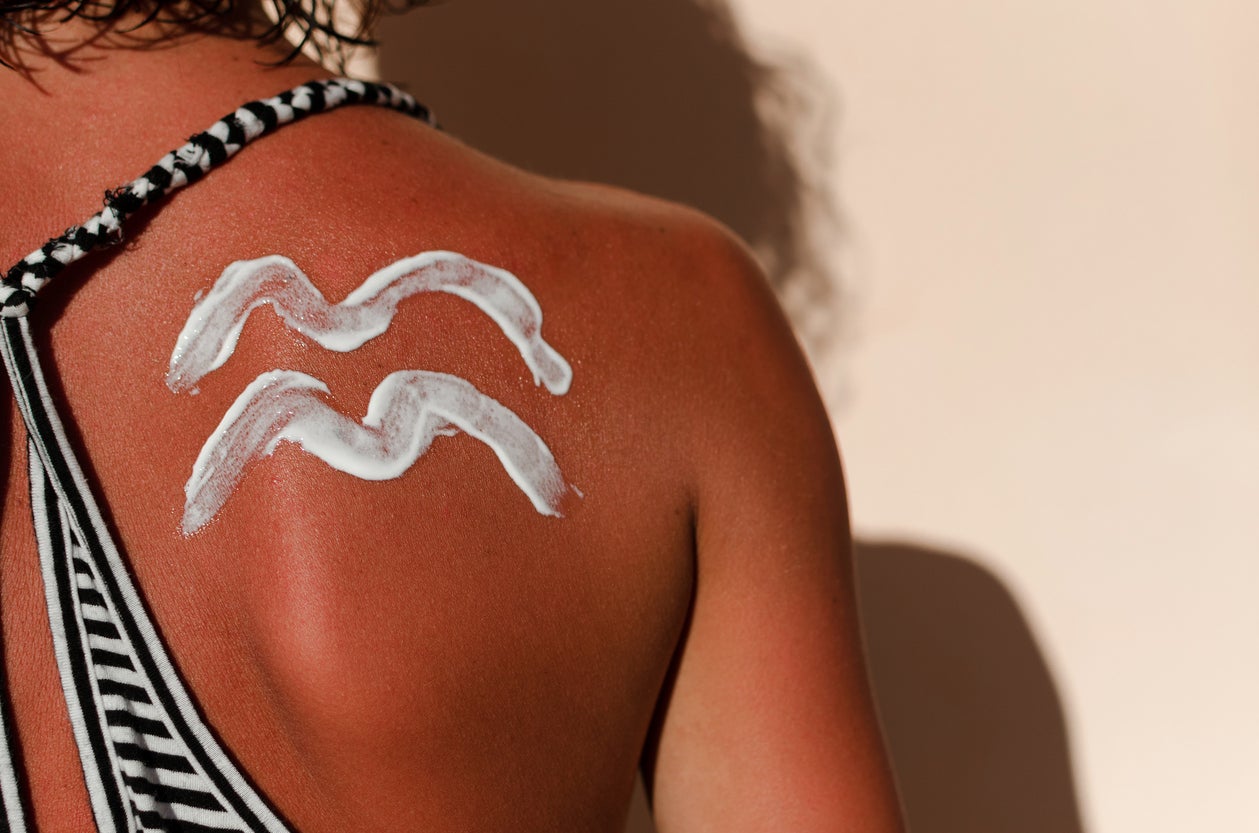The truth about applying after-sun on sunburnt skin, according to the experts
Experts reveal how to soothe your skin if you sustain sunburn this summer

Your support helps us to tell the story
From reproductive rights to climate change to Big Tech, The Independent is on the ground when the story is developing. Whether it's investigating the financials of Elon Musk's pro-Trump PAC or producing our latest documentary, 'The A Word', which shines a light on the American women fighting for reproductive rights, we know how important it is to parse out the facts from the messaging.
At such a critical moment in US history, we need reporters on the ground. Your donation allows us to keep sending journalists to speak to both sides of the story.
The Independent is trusted by Americans across the entire political spectrum. And unlike many other quality news outlets, we choose not to lock Americans out of our reporting and analysis with paywalls. We believe quality journalism should be available to everyone, paid for by those who can afford it.
Your support makes all the difference.Taking care of your skin after excessive sun exposure is incredibly important, as failing to do so could lead to long-lasting damage.
However, if your first course of action after sustaining a sunburn is to immediately buy and apply after-sun, then you may not be doing an adequate job.
According to the experts, applying after-sun could do your skin even further harm if you don’t take a thorough look at the ingredients.
That’s why it may be a wise idea to opt for an aloe vera gel instead.
“After-sun formulas tend to have rich, thick consistencies containing oils, which create an emollient barrier on top of the skin trapping in the heat in the upper layer of the epidermis and exacerbating the inflammation and ‘burn’ feeling on your face,” Michaella Bolder, Time Bomb skincare expert tells to The Independent.
“Plus, many over the counter after-suns will contain chemicals and/or fragrance. This will just irritate the damaged skin!”
Aloe vera has been highly regarded for a very long time due to its remedial properties, Lorraine Shrivener, director of Eden Skin Clinics, explains.
“Aloe vera has been a trusted skin saviour for many years,” she says. “With its immediate cooling effect to the skin, it’s a firm favourite for post-suncare.”
According to Shrivener, aloe vera is most potent when attained as a pure, clear gel.
While gels allow heat to escape from the skin, thicker creams that have been designed to lock in moisture could trap heat within the skin, making it feel cooler rather than hotter.
However, as medical director of CosmedicsUK and GP Dr Ross Perry points out, the medicinal properties of aloe vera have not technically been affirmed by scientific research.
“Aloe vera is a traditional herbal remedy believed to reduce sunburn symptoms,” he explains.
“There is no scientific evidence in support of its use for sunburn, but anecdotal evidence is that it is soothing and safe and can feel cooling.”
Aloe vera is a plant species that can trace its origins to the Arabian Peninsula.
Mentions of aloe vera as a curative ingredient can be found in the Ebers Papyrus, from 16th Century BC, and in Pliny the Elder’s Natural History, which was written in the mid-first century AD.
Despite the supposed lack of scientific evidence to back its use as a treatment for sunburn, many health professionals still recommend it for soothing irritated skin.
“Aloe vera is thought to have a myriad of positive effects on skin, especially sunburnt skin,” says Dr Natalie Spierings, consultant dermatologist at Dermatica.

“True clinical effectiveness has yet to be established. But aloe vera is not harmful and it might aid in helping calm down sunburnt skin, so it is worth giving it a try.”
While some skincare experts would advise opting for a clear aloe vera gel instead of a heavier, moisturising after-sun when treating sunburn, others would suggest simply finding an after-sun that contains the plant.
“After burning the skin you should think cool and repair,” says Bolder.
“The best way to do this is to apply a formula with a high water and high aloe vera content - the more natural and gentle the better!
“Aloe vera has quite impressive cooling, healing and antiseptic properties so will beat a generic after-sun every time.”
Using an after-sun can still be beneficial if you make sure that the ingredients are gentle and natural as possible.
However, if you’re not entirely sure of whether a specific after-sun will do more harm than good, then going for a clear aloe vera gel would likely be your safest option.
With around 16, 200 new cases of melanoma skin cancer reported in the UK every year, according to Cancer Research UK, looking after your skin is of the utmost importance during the hotter months.
Dr Vikram Rajkomar, a consultant dermatologist at Pall Mall Medical who specialises in the treatment of skin diseases and skin cancer, recommends speaking to a consultant dermatologist as soon as possible if pain caused by sunburn persists.





Join our commenting forum
Join thought-provoking conversations, follow other Independent readers and see their replies
Comments